Mr. Suzuki has been using EM for over 30 years. With his effort in preparing soil using EM technology, the vegetable quality harvest becomes excellent.
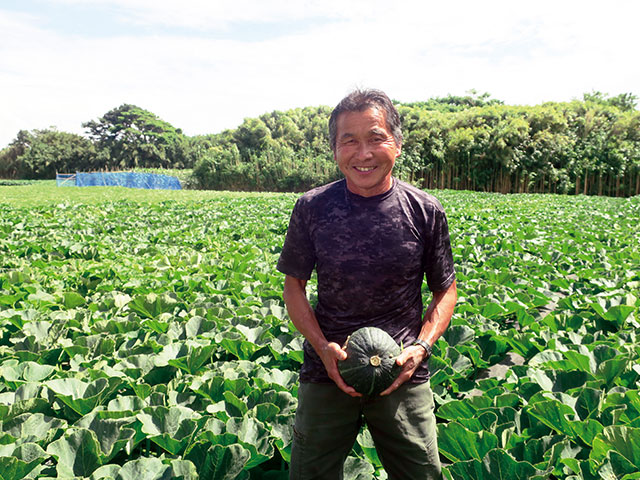
Suzuki Farm is located in the Miura Peninsula, surrounded by the ocean, in Southeastern Kanagawa prefecture Japan. It is blessed with warm weather and favorable for 2-3 crop rotations per year. He cultivates cabbages in winter and spring, and pumpkins, melons, and watermelons in summer.
Mr. Suzuki has been using EM for over 30 years. It all started when he participated in an EM workshop by Prof. Higa in 1992. At that time, he tried to shift to a soil disinfection system that didn’t use chemicals such as soil solarization, as an environmentally friendly method.
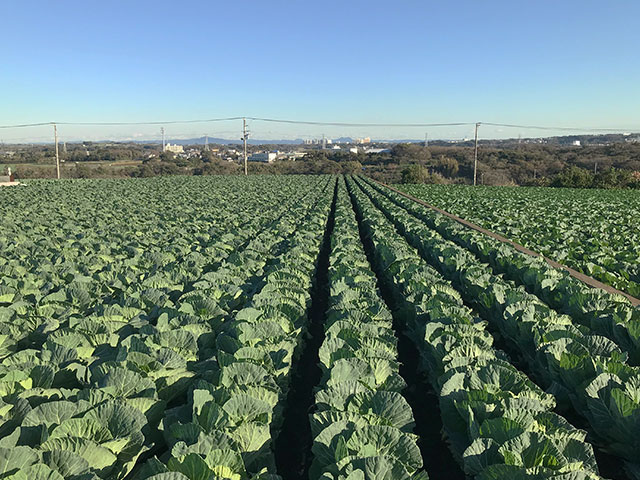
The cabbage garden in spring
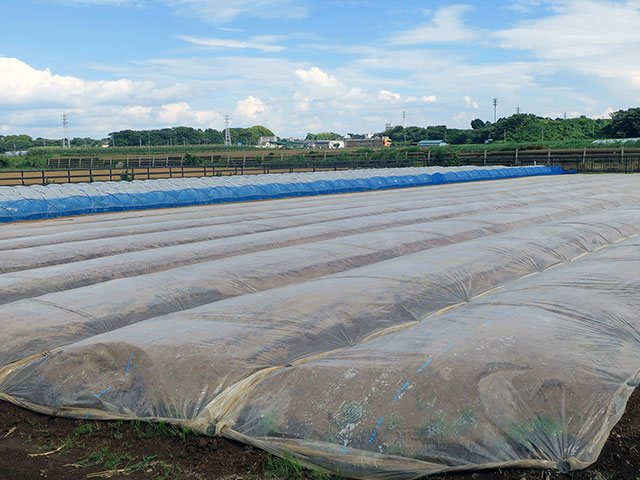
Soil solarization for weed control and pest management
After the workshop, he started to apply EM BokashiⅡ on seedbeds with three colleagues. At first, there were seed germination problems after applying EM Bokashi II. Perhaps it seems it was not enough fermentation of EM Bokashi II and there were fewer good microorganisms in the soil because of agricultural chemicals and artificial fertilizer. After many trials and errors, they gradually achieved great results and finally, they shifted to EM cultivation not only on seedbeds.
The most important thing in their farming system is the preparation of soil. They make soil with EM Bokashi II and Activated EM・1. They apply foliar spray when there is a risk of an agricultural disaster and disease. There are usually two staff therefore they can’t get around to foliar spray. Healthy soil is maintained by the diversity and balance of the group of microorganisms. When the soil microbiology is in balance, plants will be healthy, thus more resistant to damage caused by stressors such as disease or harmful insects.
He feels that raising seedlings is critically important like raising children. Suzuki Farm constantly prunes vegetable vines carefully to reduce the risk of damaging nearby leaves or vines. As a result, the vegetable quality harvest will be excellent with non-stressful growth. For instance, he grows a delicious variety of pumpkins called “Ikazuchi”. After harvest, he places them in high-temperature houses for over seven days to rapidly dry their cut end at once. It is well thought out.
As a result, *Kinokuniya buyers have preferred EM-grown cabbages and pumpkins for a long time because they are more flavorful and have a nice appearance and shape. At the local Farmer’s market, kids who hated vegetables will eat EM-grown veggies so customers request more variety of nutritious veggies to give kids.
Mr. Suzuki feels from his experience that continued use of EM enables stable crop production even under the effects of climate change. He said, “I just have continued preparation of soil with EM Bokashi Ⅱ. Some people skip this basic way because it is not easy when we get older, so this method is important for our future”.
*Kinokuniya: One of the fancy ex-pat-focused international supermarkets in Japan.
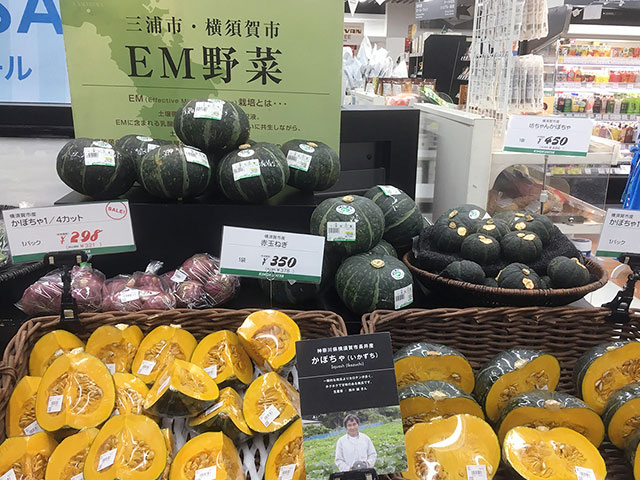
Pumpkins by popular demand at Kinokuniya
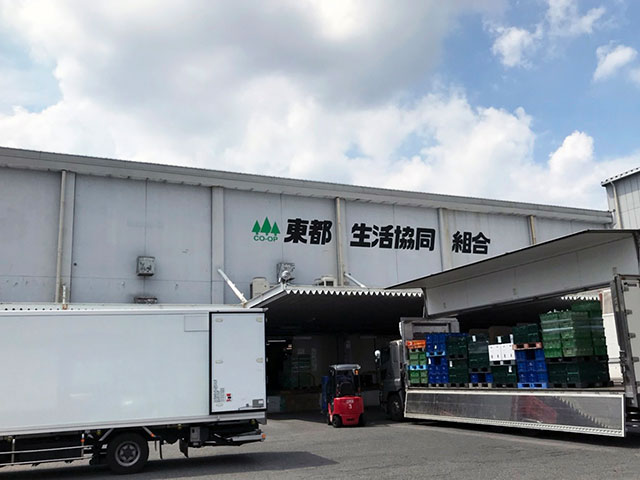
The local Farmer's market
The article is courtesy of EM Seikatsu.
2022.12.9 Updated